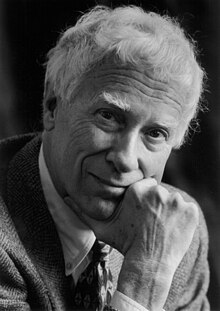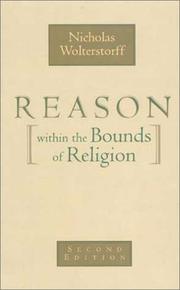Everyone I know is smarter than me. I am not naturally or inherently strong intellectually. It is precisely because of this that I have to be disciplined with my mind and thinking process. I know what little strengths I have and need to nurture those strengths. This is why reading 'Jesus Christ and the Life of the Mind' is important for me. Noll claims "Understanding more about Christ and his work not only opens a wide doorway to learning, but also checks tendencies toward idolatry that are as potent among scholars as in the rest of humankind." (p. ix)
I also belong to the Evangelical sub-culture of Northern Ireland. This sub-culture is not known for emphasising learning and the intellectual life as important. At the most extreme this sub-culture tolerates learning and the intellectual life as a means to get a job. In some churches it is not uncommon to hear further education and a life a scholarship viewed with extreme suspicion, especially if that education and scholarship is in Theology and related disciplines. Odd, I know. So it is refreshing to read Noll:
"The message in this book for my fellow evangelicals can be put simply: if what we claim about Jesus Christ is true, then evangelicals should be among the most active, most serious, and most open-minded advocates of general human learning. Evangelical hesitation about scholarship in general or about pursuing learning wholeheartedly is, in other words, antithetical to the Christ-centered basis of evangelical faith." (p. x)
Noll is a historian and therefore he is adept at drawing out the significance of the times. For example, in Chapter 1, he highlights the importance of Christians who lived in the 4th and 5th centuries when Christianity moved from an illegal sect to a formally recognised religion of the Roman Empire. Noll calls this time "the Church's first intellectual breathing space" and one challenge the Church faced at this time "was to summarize the faith in authoritative short statements that could specify what Christianity was, define a curriculum for new converts, provide formulas for use in worship, and build barriers against false teaching." (p. 1) This is a great explanation of what creeds were for and Noll weaves creedal statements throughout each chapter. Fascinating. But almost superfluous to the book in my opinion. None of his points would be lost or even weakened if his creedal weaving was removed.
For me, the book really takes off in Chapter 2 - Jesus Christ: Motives for Serious Learning - Noll highlights John 1:2-3, Colossians 1:15-16 and Hebrews 1:2 noting that one of the most basic things these passages affirm is that "for believers to be studying created things is to be studying the works of Christ ... There simply is nothing humanly possible to study about the created realm that, in principle, leads us away from Jesus Christ." (p. 25) With regard to Colossians 1:13 - 2:3 Noll elaborates further:
"The claims are strinking and bear repeating. The apostle says, in effect, that if we study anything in the realms of nature or the realms of the spirit, we study what came into existence through Jesus Christ. Likewise, if we study human interactions or spiritual-human interactions (thrones, dominions, rulers, powers), we are studying realms brought into existence by Jesus Christ. If our study concerns predictability, uniformity, regularity, we are working in the domains of the one who 'is before all things, and [in whom] all things hold together.'" (p. 28)
"The tight conjunction of assertions in Colossians underscores the fact that all humans, including academics are needy sinners who require God. All humans, including academics, remain in need of divine grace even as they explore the depths of 'wisdom and knowledge' hidden in Jesus Christ." (p. 30)
In Chapter 3 - Jesus Christ: Guidance for Serious Learning - Noll, drawing from John 1, Colossians 1 and Hebrews 1, focuses on four general expectation that can inform and guide intellectual life:
- Doubleness. Because Christ is divine and human, two natures in one integrated person, Christian thinkers should be predisposed to seek knowledge about specific things from more than one perspective. "... [F]or a Christian who has experienced the saving power of Christ, it will be a smaller step, when confronting at least some dichotomous intellectual problems, to seek the harmonious acceptance of the dichotomy than for a scholar who does not believe that the integrated person of Christ was made up of a fully divine and fully human nature." (p. 49)
- Contingency. Contingent statements are not necessarily true (like 1+1=2) or necessarily false (all bicycles have one gear). Contingency will mean pursuing the evidence of experience and not settling for non-contingent statements. As Noll writes "If we know God by experiencing him, so also do we come to know the world." (p. 52)
- Particularity. Christianity springs from real events about 2000 years ago in a specific location. If read carefully, the Gospels have dust, noise and smell. "The implication can be stated succinctly: because God revealed himself most clearly in a particular time and place, every other particular set of cultural circumstances takes on a fresh potential importance." (p. 55)
- Self-Denial. A developed and developing intellectual life can lead to pride in degrees and qualifications or pride in academic achievements. This pride can and should shrivel in light of the Good News as Noll writes "... a Christ-centered understanding of why all people require an atoning saviour demands that scholars not trust their own wisdom as the source of their self-worth." (p. 62)
Chapters 4 - 7 move on to specifically look at how Christ's saving work impacts the intellectual life for various disciplines. Noll is upfront and writes that "... these expositions are self-consciously exploratory. They are not intended as final words laying down a law but as first words urging others to take up the task." (p. 65)
Chapter 4 briefly examines the Atonement as a principle to frame scholarship. Noll relies heavily on John Stott's classic 'The Cross of Christ'. This chapter is good, but compared to the others it is a little underdeveloped. It may be that Noll has many more thoughts about the Atonement and scholarship, so much more that another book would be required. I agree with him when he writes that the Atonement "must of necessity have much to do with how the redeemed scholar approaches the tasks of learning." (p. 73) Surely everyone who takes the mantle of scholar or who values the intellectual life could unpack this sentence for a lifetime.
Chapter 5 - Christology: A Key to Understanding History - was probably the highlight of the book for me. It is the most underlined and is very important when I consider my times of doubt (which accompany my times of depression). Noll writes:
"The critical significance of history for Christianity arises, however, not just from how the past bears upon the present, but even more comprehensively from the historical character of Christianity itself ... Christian interest in history writing is a natural consequence of the fact that Christianity is so obviously a religion of historical event." (p. 76)
With regard to the possibility of historical knowledge, Noll admits that history is written by people with a context, that interesting historical facts are complex and historical knowledge is not exhaustive, irreformable or absolute. However, "Christianity has always displayed an innate tendency toward historical realism, in large part because it depends upon events that believers ... assert really happened. Moreover, Christian practice is predicated on the tacit assumption that these past events can be known reliably today and can provide meaning for present life (however far distant they occurred in the past)." (p. 78) Further, "Because all things do in fact hold together in Jesus Christ, historians who write from one particular time and place about an earlier time and place may actually be connected sufficiently with that past time and place to discover at least partial truth about it." (p. 81) This might not be enough for some people but I think it is a profound idea worth trusting. With regard to how Christians write history "The general lesson is that when humans assume that their interpretations of history possess the same level of veracity about God and his purposes as the veracity found in Scripture, there are always real difficulties." (p. 86) This is again very stimulating and worthy of sustained meditation.
Chapter 6 - "Come and See": A Christological Invitation for Science - shows Noll's strengths as a historian. He gives a good short history of the development of science and the relationship it has to Christianity. He provides an important overview of how Galileo Galilei advised how to combine investigations of nature with complete trust in Scripture (p. 103). There is nothing new under the sun. Noll claims that answering questions about science and Christianity responsibly "requires sophistication in scientific knowledge and sophistication in biblical interpretation - exercised humbly, teachably, and non-defensively. Unfortunately these traits and capacities have not always predominated when such questions are addressed." (p. 121) This is not a chapter that young earth creationists will agree with at many points but for me it was important and has helped me think through a number of important issues.
Chapter 7 - Christology: The Foundation of Biblical Study - discusses how to best understand the Scriptures. Noll's two main allies are J I Packer and B B Warfield. This is good because if you were to believe all you read on the internet B B Warfield's work on the Inspiration of Scripture is hopelessly outdated. Noll also uses Peter Enns work Inspiration and Incarnation. I have not read Enns' book but it seems interesting even though a lot of people have been very critical of it. Noll writes "Stressing the capacity of revelation to unite humanity and divinity in perfect integration puts believing scholars on the path to intellectual insight, but only because this is the path to life." (p. 145)
This has been a challenging book to read, not because the writing style was difficult, but because it was so suggestive and stimulating. It was also very devotional causing me to stop and worship God. Not bad for a book about the life of the mind. How has the book changed me? Now, more than ever, I will pursue excellence in intellectual pursuits always being aware that my identity and worth come from Jesus. I will also push back whenever I encounter anti-intellectualism in my own life, church life and work life.







